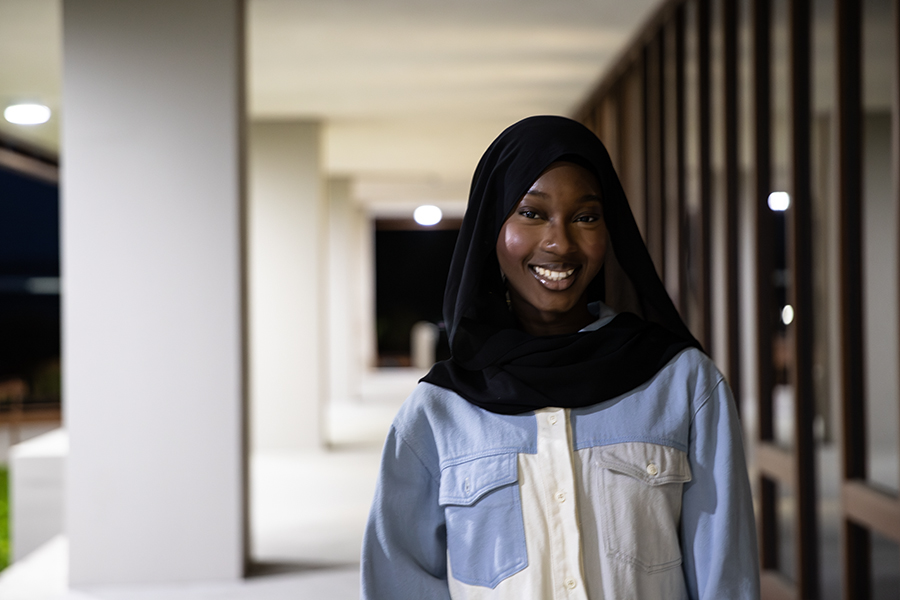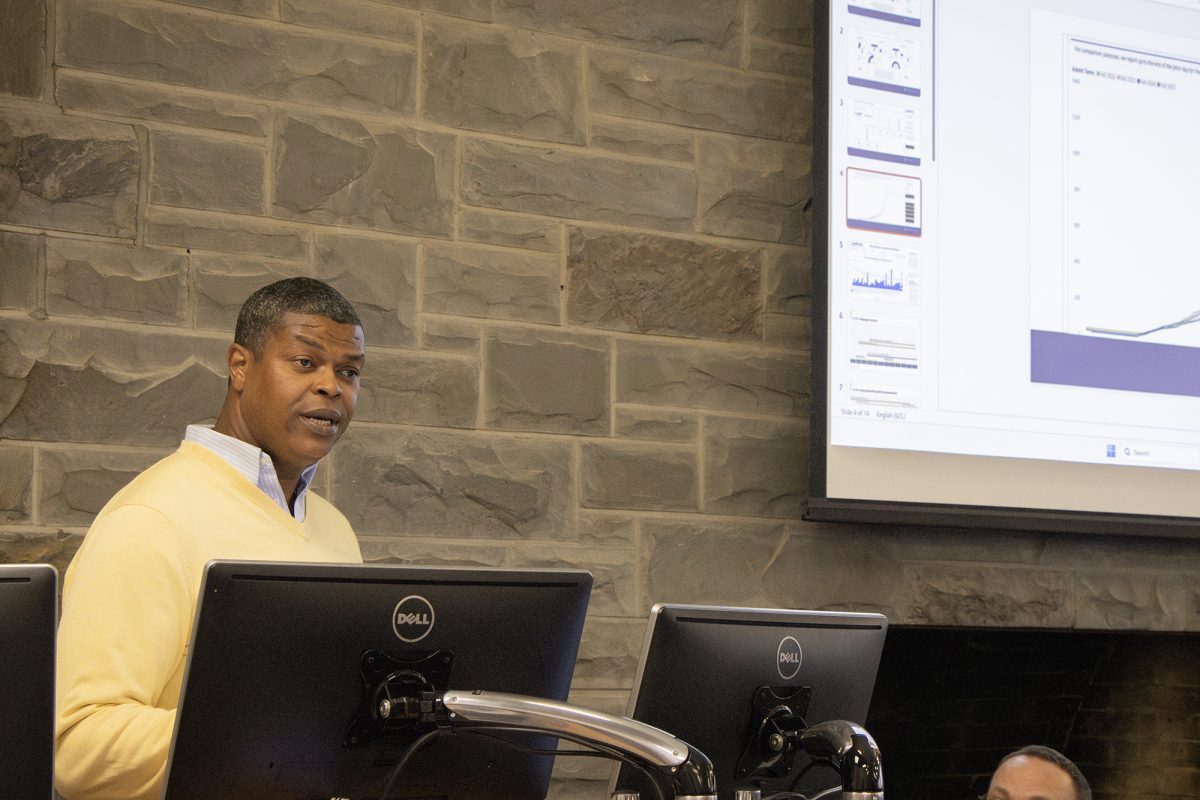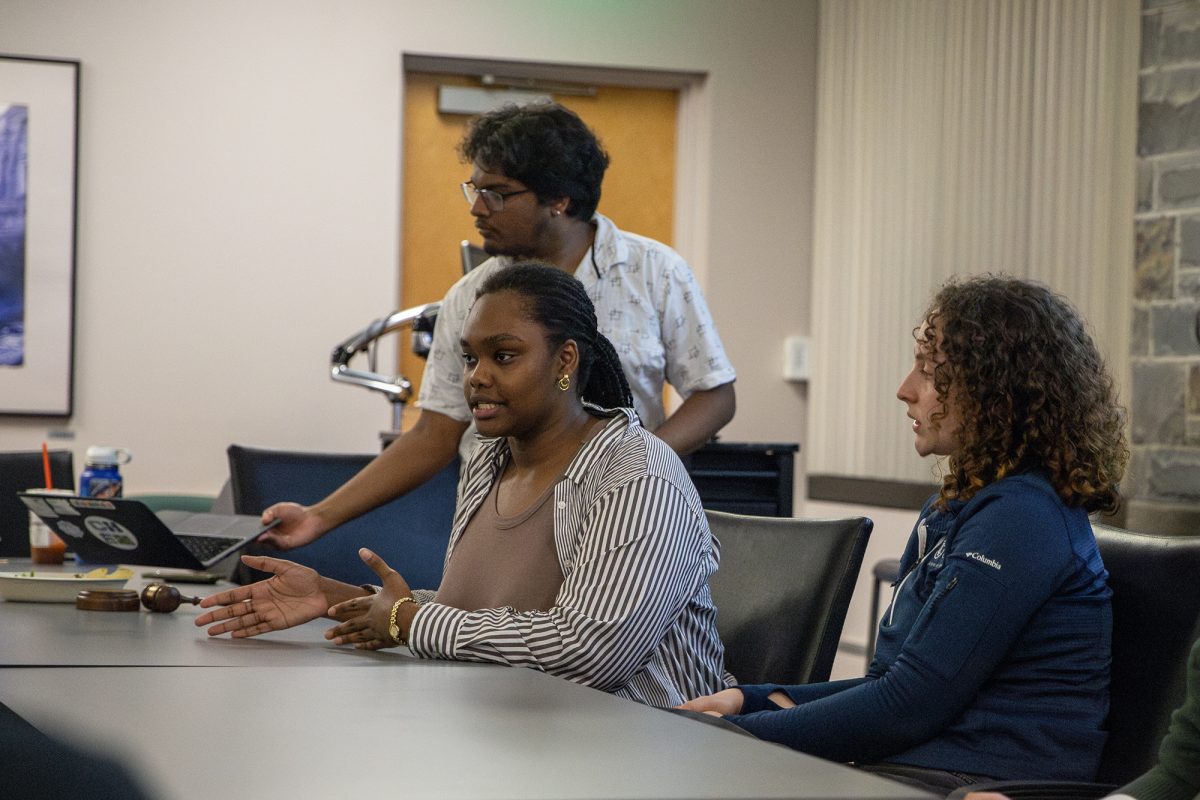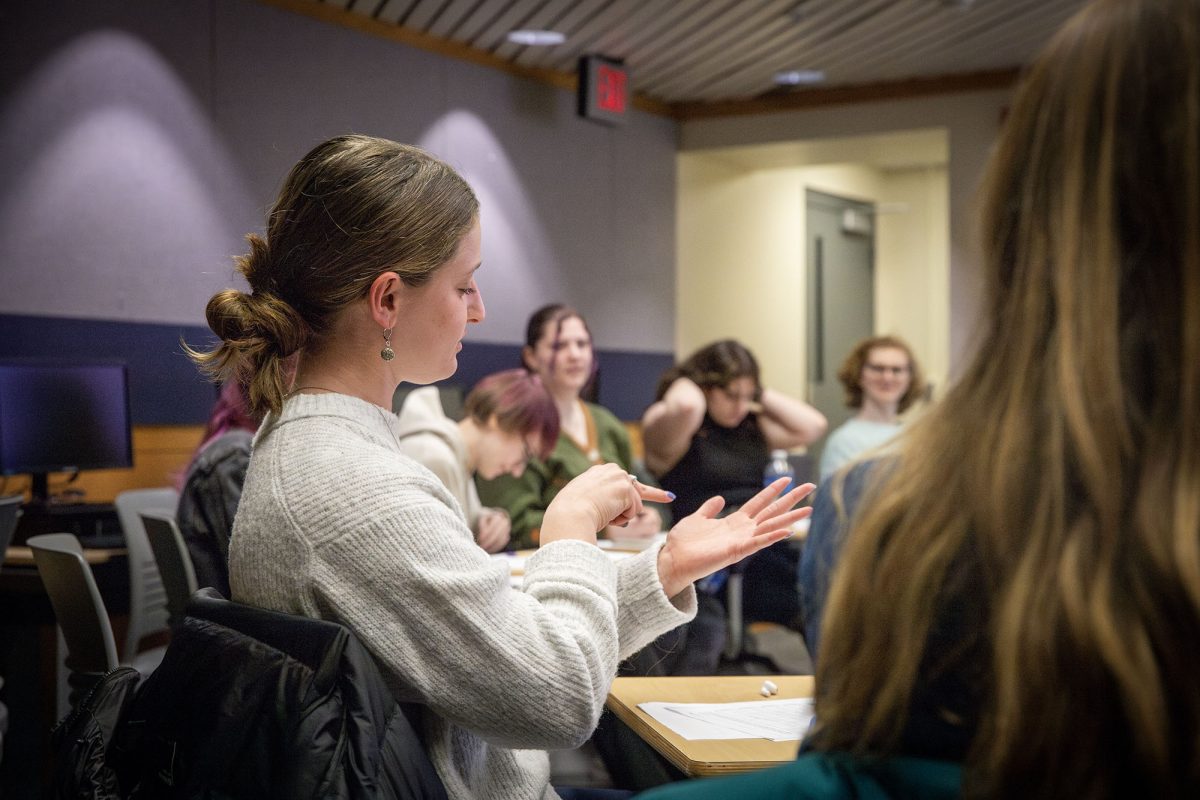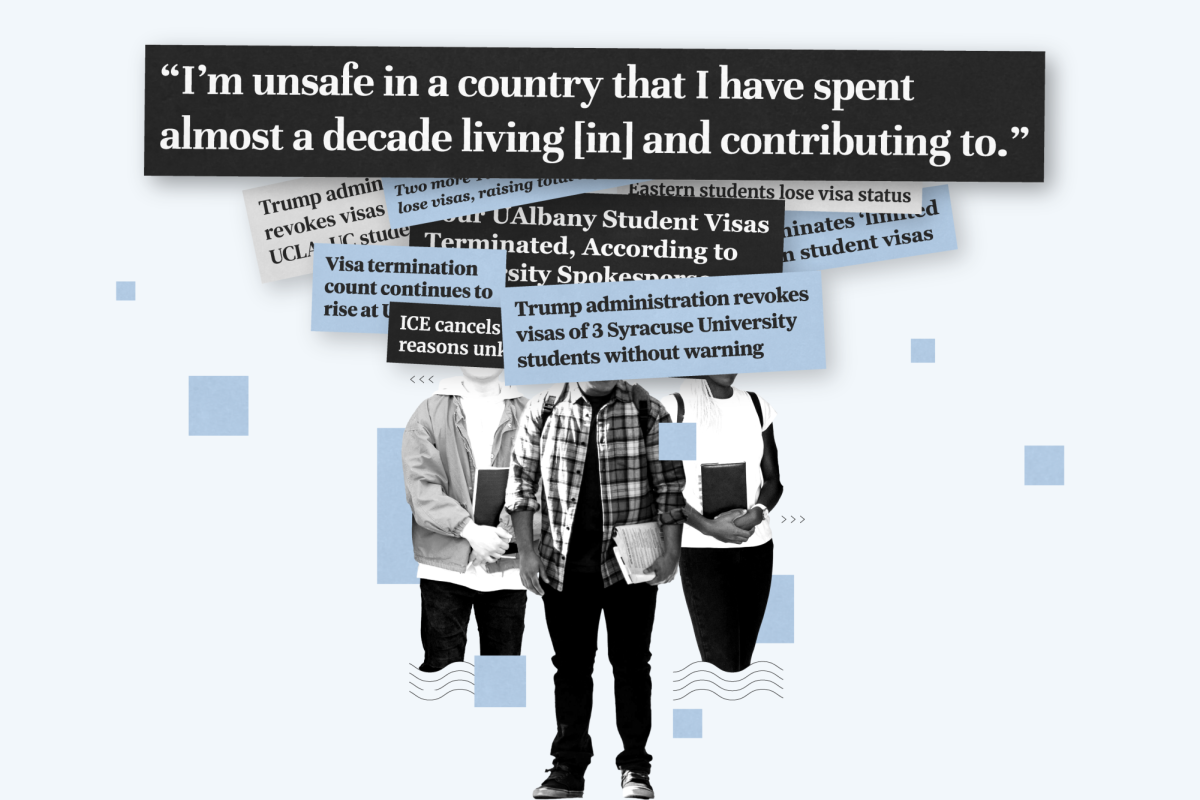With the help of a grant from Projects for Peace, Ithaca College senior Sarake Dembele traveled to the small town of Gogui, Mali, in Western Africa during summer 2023 where she worked with the local women to create food sources and financial independence.
Projects for Peace is a global international organization that is a part of the Davis UWC Program at Middlebury College in Vermont. It partners with many colleges around the United States and invests money into students’ projects. Each year, the program grants $1.25 million to innovative and leader-oriented students who present specific and achievable ideas to contribute to the world’s economic and political issues.
Last summer, Dembele received a grant of $10,000 after she presented her plan of helping women in Gogui to Projects for Peace. Dembele decided to buy a piece of land and different kinds of seeds for Malian women to be able to grow their own food and, later, sell it to make a profit.
“I was back and forth between ideas,” Dembele said. “Me and my parents would just get on a call for hours and talk about [ideas]. I was in disbelief that it was happening to me.”
According to UN Women, women in the town of Gogui lack independence in many ways. Mali was ranked 184th in the Gender Inequality Index in 2020, showing how women of the country are highly dependent on their husbands for financial security and therefore lack jobs, education and food sources. Women often suffer from gender-based violence and are mostly denied justice because of structural inequity.
Dembele’s family comes from Mali, which she said is why she chose to focus her project there. Dembele’s mother, Aisse Dembele, said she was overwhelmed with emotions when her daughter was planning to visit her native country.
“It was a big opportunity for Sarake to meet her grandmother from her father’s side, and also aunts and cousins for the first time,” Aisse said. “We always imagined and always planned to go there as a family. So, I think that was very emotional for all of us.”
Dembele’s father, Mousse Dembele, grew up in Gogui and he traveled there with his daughter after almost 13 years of living abroad.
“When we made a decision that I will fly with Sarake, the whole village was very happy and excited,” Mousse said. “I was proud to be there with her.”
After driving to the village from the airport, Dembele said she met with the mayor of Gogui and Binta Wague, president of the local women’s organization, who Dembele collaborated with. The women of Gogui work to develop income-generators that will continue to advance their crop cultivation and cattle fattening. Wague communicated with The Ithacan through a letter translated by Dembele. Wague said the project helped women in the community gain financial stability.
“When I first heard about the project, it was like an answer to our prayers,” Wague said. “I was overwhelmed with joy. We were struggling for so long with many issues due to lack of financial resources. It came as a big relief for us, women of Gogui, as it took away the financial burden of renting the land. Today, we are very proud and have no words that could express the level of gratitude we feel towards our daughter, Saraké. We are also eternally grateful to ‘Projects for Peace Grant.’”
Dembele bought pieces of land that were equally split among the women in the village. Then, Dembele provided many different kinds of seeds that she and her mother bought in the U.S. She said she bought around 5,000 seeds and there were many aspects to be considered when choosing appropriate seeds for Malian weather and land conditions.
“From a marketing standpoint, you usually don’t want to sell something that everyone else has,” Dembele said. “That is why I tried to find seeds that they don’t have in Mali but that would also be able to grow there because not all seeds can grow everywhere and some of them are hazardous to the soil.”
Aisse said she thinks her daughter made a great impact on the women of the village’s quality of life.
“For a lot of those women, it is going to be a way to sustain themselves and their families, and it can be a source of income,” Aisse said. “They were very, very grateful and they were touched by the fact that even though Sarake was not born there, she still thought about them.”
Mary Nann, executive assistant to the vice president for marketing and enrollment, is the college’s former liaison for Projects for Peace who helped Dembele through the process. Nann said she got involved with the project as soon as she came to work at the college in November of 2019, after she spent a number of years at Cornell University, and considers it a valuable opportunity for students.
“There’s $10,000 available for a student to use their imagination, and the things that are sparking their thoughts and imaginations to do something good for other people,” Nann said. “To me, that’s invaluable.”
With Nann’s help, Dembele was able to plan her work there step by step. Nann said the position of liaison included advising Sarake on her path of planning the trip.
“Sarake was so enthusiastic and so wonderful to work with,” Nann said. “She is actually the first student in the many years that gave me updates about how the project went in detail.”
Sarake said the transportation itself was not included in the budget they made, and therefore, she and her dad had to fund about $9,000 in logistical costs so the grant money could be used solely on the project.
“Our priority was for the project to maximize the benefit for women,” Dembele said. “We wanted to get a large plot of land and that’s not cheap. …That was our sacrifice, as my dad said: pulling from our pockets to contribute and make this trip reasonable.”


